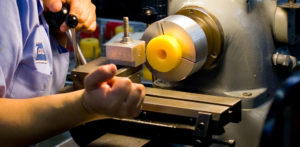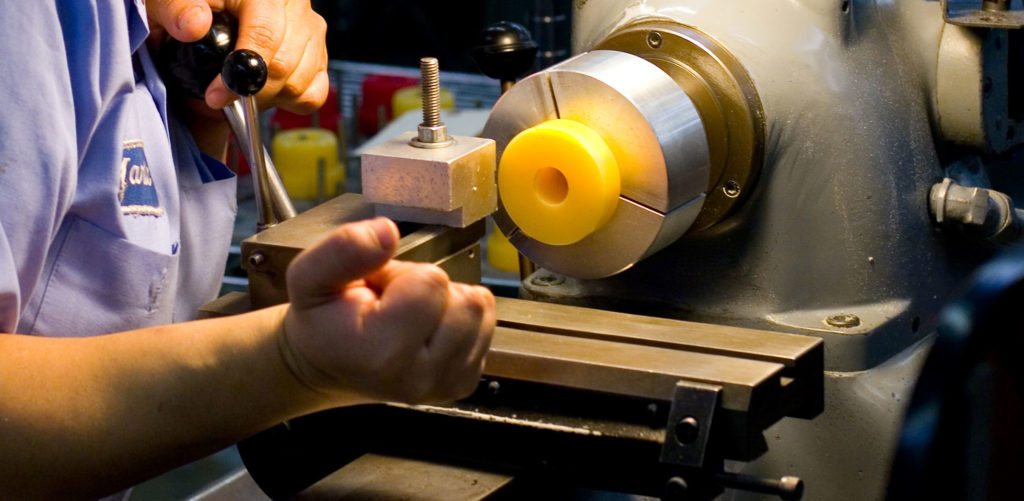Key Points for Machining Polyurthane
Cast Polyurethanes are well suited for polyurethane machining processes — machining, cutting, contouring, milling, turning and facing, parting, knifing, grinding, or drilling.
There are many similarities between machining polyurethane and machining metals – but there are also some important differences. Take a minute to familiarize yourself with this information to understand these differences.
 When machining polyurethane, there are four key points to address:
When machining polyurethane, there are four key points to address:
- Thermal Conductivity – Polyurethanes have much lower thermal conductivity than metals. Heat generated by cutting tools stays close to the tool and raises the urethane temperature rapidly. This heat must be controlled. Melting can occur above 350°F. In addition to possible melting, heat generated by machining causes the part to expand. When the part cools, it shrinks and could become undersized.
- Elastic Recovery – Elastic recovery occurs in urethane both during and after machining. The cutting tool must provide clearance to compensate for this. Without compensation, expansion of the urethane as it passes the tool will result in increased friction between the cut surface and the cutting tool. Excess heat build-up will result.Elastic recovery after machining can result in smaller internal diameters and larger external diameters than were measured during cutting.
- Modulus of Elasticity – Urethanes are resilient and can easily be distorted. It is possible to alter the shape of a urethane part by clamping or chucking it with too much force. This would cause the final machined shape to be distorted after the cuts have been made and the fixturing pressure was released. Care must be taken to hold parts securely, but to avoid distortion due to holding or cutting.
- Softening Point – Gumming, poor finishes and poor dimensional control will occur if excess heat is generated and allowed to accumulate. Proper tool geometry, feed rates and cutting speed, in conjunction with coolants usually overcome these problems. Water soluble cutting oils and or light machining oils are good coolants for urethanes.

